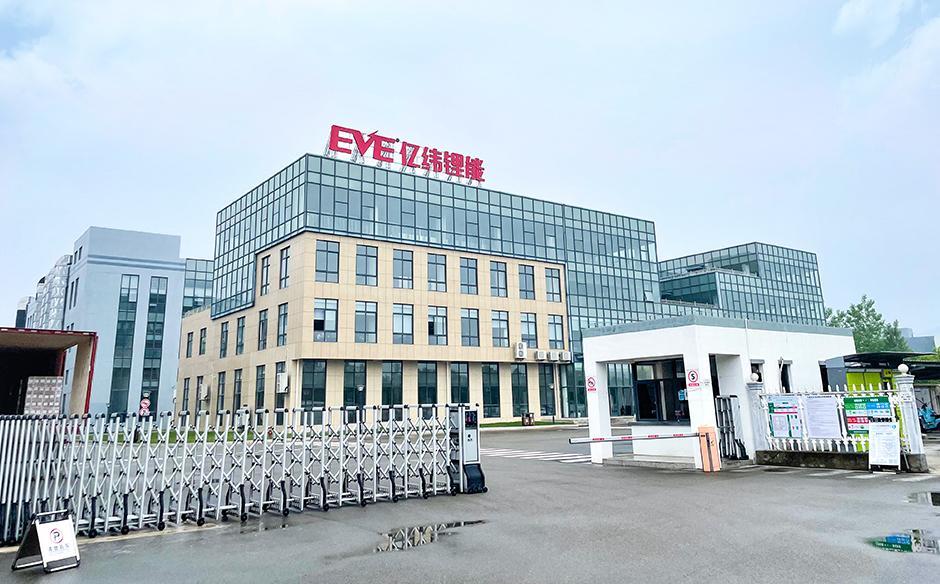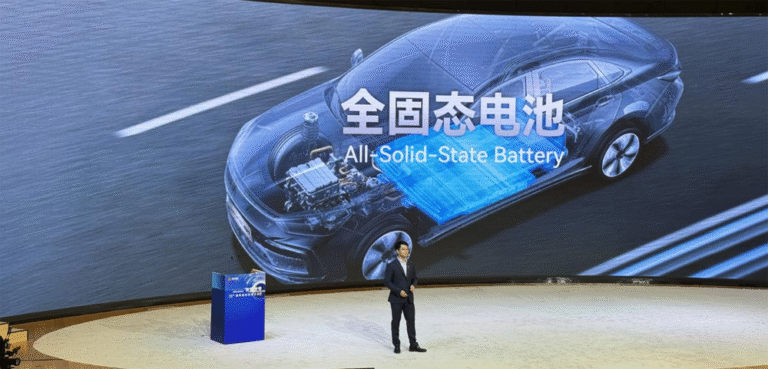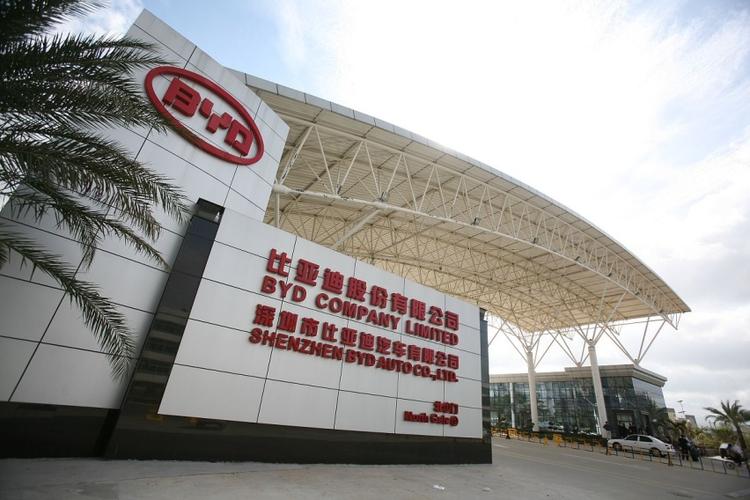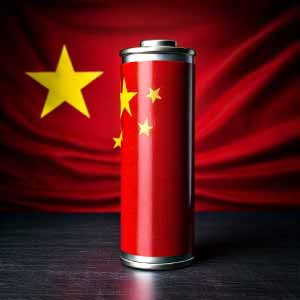EVE Energy Company Limited Detailed Research Report ,Management and Leadership (Founder/CEO Profile, Key Executives, Strategy)
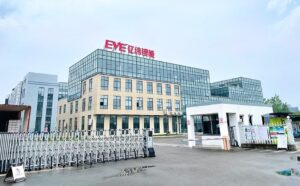
- Founder and Chairman – Liu Jincheng: EVE Energy was founded in 2001 by Mr. Liu Jincheng, who continues to serve as Chairman of the Boarden.wikipedia.org. Born in 1964 (age ~60), Liu Jincheng is an entrepreneur with a technical background in battery chemistry. Under his leadership, EVE grew from a small startup into a publicly listed company in just 8 years (IPO on Shenzhen’s ChiNext in 2009)en.wikipedia.org. Liu is known for his forward-looking vision and aggressive expansion strategy. He anticipated early the potential of lithium batteries beyond consumer electronics and positioned EVE in emerging sectors like EVs and energy storage. Liu Jincheng has also fostered a culture of innovation within EVE – he himself holds several battery-related patents and emphasizes R&D spending even during downturns. As Chairman, he focuses on strategic partnerships and long-term planning. For example, Liu was instrumental in securing the decade-long contract with Daimler in 2018en.wikipedia.org and in driving the decision to invest heavily in overseas plants, seeing globalization as vital for EVE’s Tier-1 status. Colleagues describe him as strategic yet technically savvy, able to discuss battery materials one moment and global market trends the next. Liu’s management philosophy centers on “innovation, quality, and global mindset”, and he often cites the goal of making EVE a sustainable enterprise that contributes to society (aligning with its ESG ethos).
- CEO and Executive Team: The day-to-day operations are led by Liu Jianhua, who is the President (CEO) and a Director of EVEbloomberg.com. (Despite sharing the surname, sources suggest Liu Jianhua is not immediate family of Liu Jincheng; it’s a common surname). Born in 1974, Liu Jianhua is around 50 and has been with EVE for many years, rising through the ranks. He holds an engineering background and previously oversaw production and technology divisions. As CEO, Liu Jianhua handles execution of the company’s strategy, operational efficiency, and market expansion initiatives. Working closely with him is Ms. Jiang Min, who serves as Chief Financial Officer (CFO), Board Secretary, Vice President, and Directorglobaldata.com. Jiang Min has been crucial in managing EVE’s finances, including fundraising (like convertible bond issues) and investor relations, ensuring the company has the capital to fuel its growth. Other key executives include Vice Presidents overseeing R&D, manufacturing, overseas business, and supply chain. For example, EVE has a Senior VP for Energy Storage Solutions (Snow Shi, according to LinkedIn) and a CEO for EVE Energy Storage Co. (an ESS-focused subsidiary), reflecting a specialized leadership focus on ESS. The management team overall is a mix of veteran engineers and professional managers:
- Many senior leaders have technical degrees (some with PhDs) which helps in a technology-driven industry.
- The team has international experience: EVE’s leadership includes professionals who have worked at global companies or studied abroad, aiding cross-cultural operations.
- Management Strategy and Philosophy: EVE’s leadership has articulated a clear strategy centered on:
- Global Expansion: The management strongly believes international markets are key. In a formal move, on Jan 29, 2024, EVE “launched global operations” by setting up seven regional headquarters across China and Asia-Pacific, and planning ones for Americas and Oceaniaen.wikipedia.org. By September 2024, the Americas HQ in California was establisheden.wikipedia.org. This regionalization strategy, led by the executive team, is meant to bring decision-making closer to key markets and customers, enabling faster response and local networking. The CEO and Chairman both frequently emphasize becoming a “global Tier-1 supplier” and measure success by deals with top international clients like BMW, Daimler, and Tesla.
- High-Growth Segments Focus: The management has pivoted EVE’s resources toward segments with strong growth and margins, notably energy storage and overseas EV markets. The financial results underscore this shift – robust growth in energy storage shipments is a direct result of a deliberate strategic focusainvest.com. Liu Jincheng has stated that the energy storage business is a primary growth engine, and the company set an aggressive goal for ESS shipments (50 GWh in 2024, of which 60-70% overseas)ainvest.com. Similarly, management decided to aggressively pursue cylindrical EV cells anticipating rising demand from Western OEMs (a move validated by winning BMW’s contract).
- Innovation and R&D Investment: The leadership’s commitment to innovation is reflected in rising R&D budgets (up 16% in 2024)ainvest.com even during a period of tight margins. The company has built multiple R&D centers and hired experts (including foreign talent) to stay at the cutting edge. For example, EVE’s executives initiated the large-scale R&D center in Chengdu (¥20 billion project) to secure future tech developmenten.wikipedia.org. The R&D strategy is guided directly by top management, ensuring that product development aligns with market needs and that emerging technologies (like sodium-ion, solid-state) are explored early. This approach is encapsulated by a motto often cited internally: “技术为本,创新为魂” (Technology as the foundation, innovation as the soul).
- Vertical Integration and Supply Chain Security: Recognizing the importance of raw materials, EVE’s management has pursued upstream investments. Under Liu Jincheng’s direction, EVE took equity stakes in a lithium carbonate producer (20%) and an anode materials firm (40%) in 2022en.wikipedia.org. Executives likely calculated that securing critical materials would protect margins and supply. The management also negotiates long-term agreements with suppliers (e.g., multi-year separator supply deals in 2024en.wikipedia.org).
- Financial Prudence vs Growth: The executive team balances rapid expansion with financial stability. CFO Jiang Min has kept a close eye on leverage and funding: for example, EVE authorized up to ¥5 billion in convertible bonds in 2024 to finance expansion without solely relying on bank debtmarketscreener.com. Management targets a healthy liquidity buffer (as seen by ¥12+ billion cash on handainvest.com) to weather industry cycles. However, they are not afraid to invest heavily in capacity ahead of demand, a calculated risk aligned with their long-term outlook.
- Corporate Culture: Leadership fosters a culture that encourages innovation, speed, and execution. Despite its now large size (20,000+ employees), EVE tries to maintain an agile, entrepreneurial spirit from its startup days. Liu Jincheng is known to personally reward teams that achieve technical breakthroughs or land major clients. The company provides stock incentives to key staff, aligning their interests with corporate performance. Management also emphasizes ethics and sustainability, integrating ESG goals into the company’s mission (see ESG section).
- Key Leadership Initiatives: Some initiatives spearheaded by management in recent years include:
- The Daimler partnership (a 10-year contract signed in 2018) was a landmark deal orchestrated by Liu Jincheng to validate EVE on the global stageen.wikipedia.org. This opened doors to other OEMs.
- The decision to invest in Hungary and Malaysia plants was made proactively by management to capitalize on overseas demand and circumvent trade barriers, showing foresight.
- The Amplify US JV was a creative approach to enter North America by sharing investment and leveraging partners’ presence – a strategic move by EVE’s leadership to comply with local content requirements while minimizing risken.wikipedia.org.
- Internally, management instituted a “Global Cooperative Model” (mentioned in an investor briefing) which fosters partnerships (like with Daimler Truck, Paccar for ACT JV, and with suppliers) to accelerate expansion while sharing costsainvest.com.
In summary, EVE’s management, led by founder-chairman Liu Jincheng and CEO Liu Jianhua, has demonstrated a combination of technical insight and bold strategic execution. They guided the company through phases of explosive growth and are now navigating a more competitive landscape by doubling down on innovation and global outreach. The leadership’s policies of heavy R&D investment, global expansion, and strategic partnerships are aimed at cementing EVE’s position among the top battery makers in the world. While challenges like margin pressure exist, the management’s proactive and visionary approach is a key asset for EVE’s long-term success.

